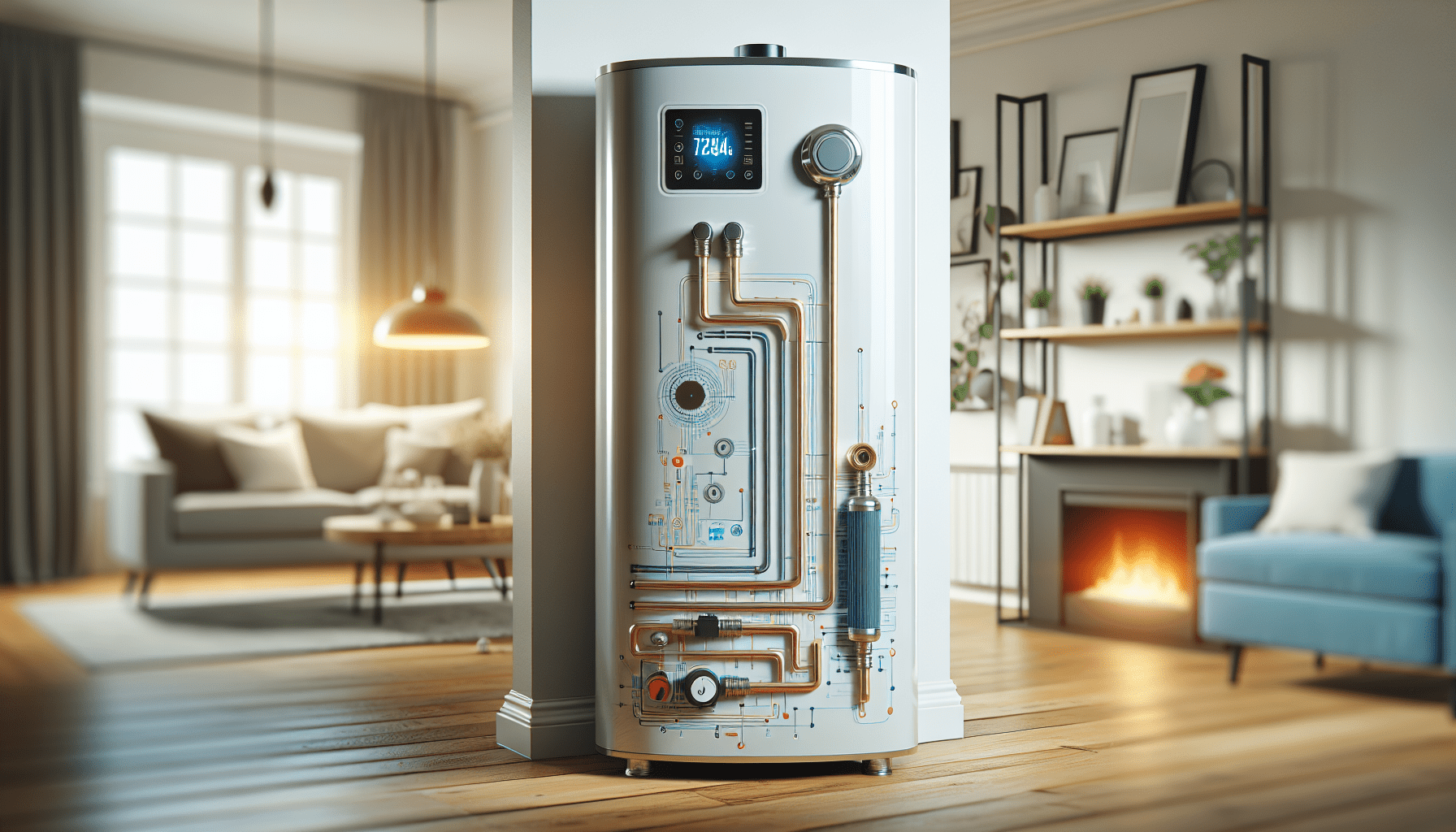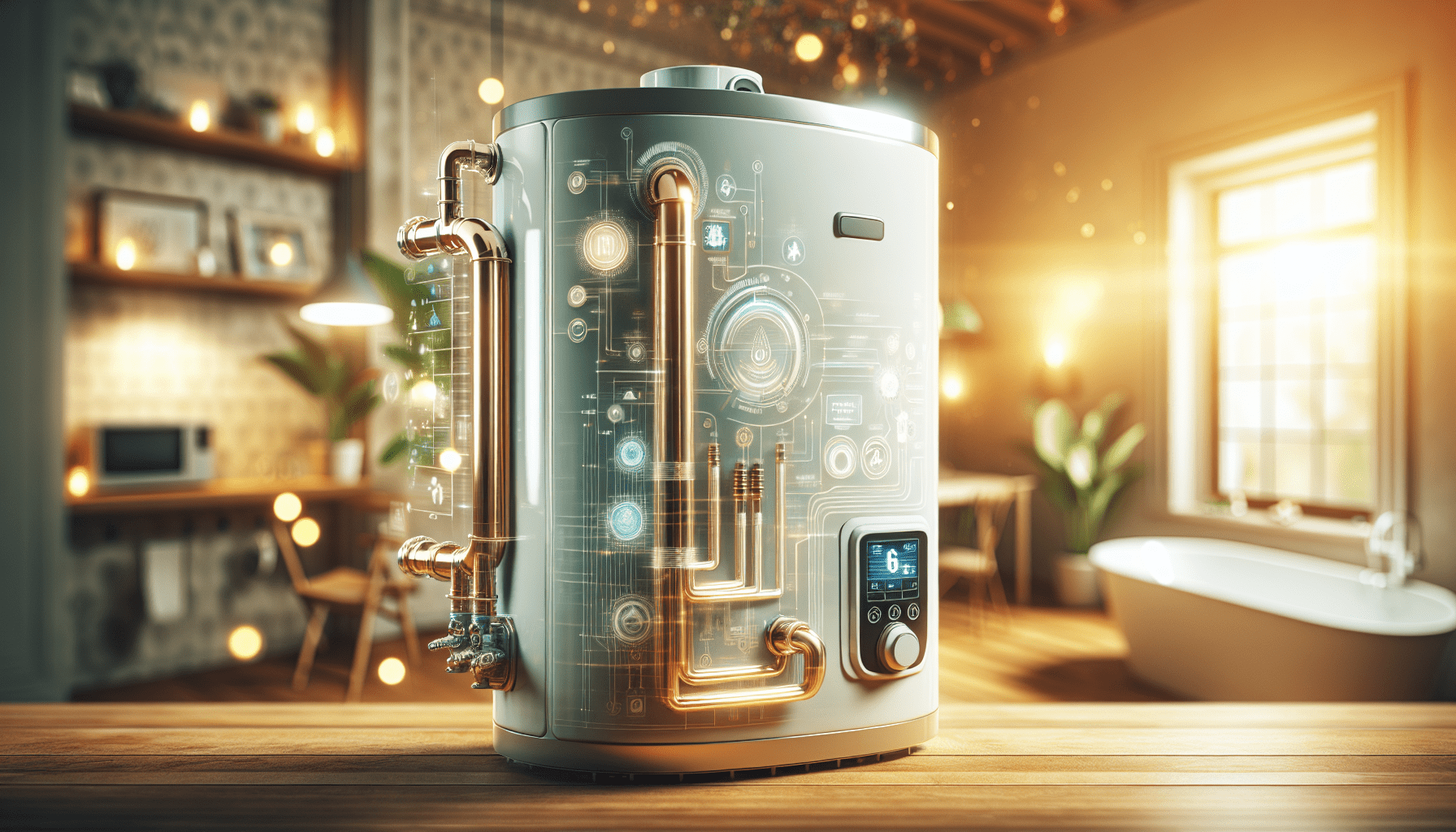Have you ever wondered how a heat pump water heater can be both efficient and effective in providing hot water? It’s a curious subject, and understanding how it works might just blow your mind. Let’s unpack the mystique of heat pump water heaters in this comprehensive guide, where you’ll learn everything from the basic principles to the inner workings of these nifty devices.

What is a Heat Pump Water Heater?
Before we get into the nitty-gritty of how these systems operate, let’s clarify exactly what a heat pump water heater is. Essentially, it’s a device that utilizes electricity to move heat from one location to another, rather than generating heat directly. This unique mechanism allows it to produce hot water using significantly less energy than traditional electric water heaters.
To put it simply, a heat pump water heater draws in heat from the air, even when it’s chilly outside, and uses it to warm the water in your tank. Sound fascinating? It certainly makes the whole hot water process feel a bit magical!
How Does It Work?
Understanding the operation of a heat pump water heater requires a little insight into thermodynamics. The heat pump works on the principle of evaporation and condensation. Just like your refrigerator takes heat out from the interior to keep your food cold, a heat pump water heater removes heat from the ambient air to heat the water.
Key Components of a Heat Pump Water Heater
To better grasp how these systems work, it shines a light on the essential components that make it happen:
| Component | Function |
|---|---|
| Evaporator | Absorbs heat from the air and turns refrigerant into gas |
| Compressor | Compresses the gas, raising its temperature and pressure |
| Condenser | Releases heat into the water, turning refrigerant back into liquid |
| Expansion Valve | Reduces the pressure of the refrigerant, cooling it down |
Each of these components plays a crucial role in the transition of heat and the cycle of water heating, ensuring you have warm water when you need it.
The Refrigerant Cycle
At the heart of every heat pump water heater is a refrigerant – a substance that circulates through the system and plays the part of the heat transporter. Here’s how the cycle works, step by step:
- Evaporation: The refrigerant enters the evaporator, where it absorbs heat from the surrounding air, changing from a liquid to a gas.
- Compression: The gaseous refrigerant is then drawn into the compressor, which increases its pressure and temperature.
- Condensation: Next, it moves to the condenser, where it transfers its heat to the water in the tank, cooling down and changing back to a liquid state.
- Expansion: Finally, the refrigerant passes through the expansion valve, where it loses pressure and cools down before returning to the evaporator to start the cycle again.
This continuous cycle allows the heat pump to effectively transfer heat from the air to the water, making it a highly efficient system.
Benefits of Heat Pump Water Heaters
Using a heat pump water heater comes with a variety of advantages that might pique your interest. Let’s break down some of the key benefits:
Energy Efficiency
Heat pump water heaters are renowned for their energy efficiency. They can be two to three times more efficient than traditional electric water heaters. This means that for every unit of electricity consumed, they can provide two to three units of hot water, leading to lower energy bills and reduced environmental impact.
Cost Savings
While the initial investment in a heat pump water heater may be higher than conventional models, the long-term savings on your energy bills often offset the cost. You’ll find that the higher efficiency translates to significant savings over time.
Environmental Impact
By using renewable heat from the air rather than generating heat directly, heat pump water heaters reduce your carbon footprint. This is especially important if you’re conscious about your environmental impact and want to contribute to a greener planet.
Versatility
These water heaters can often be used in various situations, serving both indoor and outdoor settings. They can operate effectively in different climates, although they perform best in moderate temperatures.

Installation Considerations
Like with any appliance, the installation of a heat pump water heater requires attention to detail. Here are a few things to keep in mind:
Space Requirements
Heat pump water heaters need a certain amount of space for air circulation. Because they draw in cold air and release warmer air, you’ll want to make sure there’s ample space around the unit. Generally, manufacturers recommend at least one foot of clearance on all sides.
Climate Conditions
While these heaters can function well in various climates, their efficiency can be impacted by extremely cold temperatures. If you live in a very cold region, you may need to consider a hybrid model or supplement with a traditional heating system during the harshest winter months.
Noise Levels
Heat pump water heaters can produce some noise, as they operate similarly to air conditioning units. If you’re particularly sensitive to sound or planning to install the unit near living spaces, it’s worth considering the noise factor before making a purchase.
Maintenance Tips
Like any appliance, regular maintenance can keep your heat pump water heater running smoothly and efficiently. Here are a few helpful tips:
Regular Cleaning
Dust and debris can accumulate in the unit, impacting efficiency. Regularly cleaning the evaporator coils and clearing any obstructions around the unit can help maintain its performance.
Inspect the Anode Rod
The anode rod in your water heater helps prevent rust from forming in the tank. Check it periodically and replace it as necessary to prolong the life of your water heater.
Monitor Temperature Settings
Ensure your unit is set to an appropriate temperature. The Department of Energy recommends keeping it at 120ºF to balance comfort and energy savings.
Common Myths About Heat Pump Water Heaters
Debunking myths about any technology is essential for making informed decisions. Here are a few common misconceptions surrounding heat pump water heaters.
Myth: They Don’t Work Well in Cold Climates
While it’s true that heat pump water heaters may have reduced efficiency in extremely cold temperatures, most modern units are designed to function adequately in various conditions. For regions with extreme climate fluctuations, opting for a hybrid model can provide added reassurance.
Myth: They Require Maintenance Every Month
While regular maintenance is crucial, it doesn’t need to happen every month. With diligent care and checks, twice a year is often sufficient for most heat pump water heaters.
Myth: They Only Work with Conventional Tanks
Heat pump water heaters can be used with both traditional storage tanks and tankless systems. Many models are designed to retrofit into existing water heating setups.
Troubleshooting Common Issues
Sometimes, even the best appliances run into issues. Knowing how to troubleshoot can save you from unnecessary service calls.
No Hot Water?
If your heat pump water heater isn’t producing hot water, first check the thermostat settings. Make sure it’s set correctly. If that looks good, inspect the power supply to ensure the unit is getting electricity.
Weird Noises?
If you’re hearing strange noises, it may be a sign of debris in the fan or compressor. Try cleaning the unit and removing any blockages.
Leaks?
Leaks can occur for various reasons but often stem from loose fittings or a faulty tank. Inspect all connections and use plumbing tape if necessary. If the leak persists, it may be best to consult a professional.
Heat Pump vs. Conventional Water Heaters
Now that you understand how heat pump water heaters operate, let’s contrast them with conventional water heaters to help you decide what’s best for your needs.
| Feature | Heat Pump Water Heater | Conventional Water Heater |
|---|---|---|
| Energy Source | Ambient air | Electricity/Gas |
| Efficiency | Highly efficient | Generally less efficient |
| Operating Costs | Lower operating costs | Higher operating costs |
| Environmental Impact | Low carbon footprint | Higher carbon footprint |
| Life Expectancy | 10-15 years | 8-12 years |
Understanding these differences can be invaluable in making a decision about what kind of water heater best suits your lifestyle and preferences.
Final Thoughts
Understanding how a heat pump water heater operates opens up a world of possibilities when it comes to energy efficiency and sustainability. You can feel good knowing that while you enjoy hot showers and clean dishes, you’re not depleting the planet in the process.
By making informed decisions about your home’s heating systems, you’ll not only save money but also contribute to a more sustainable future. So, whether you’re already considering a heat pump water heater or you’re just now learning the ropes, you’ve taken the first step toward a smarter, more eco-friendly lifestyle!
If you ever have questions or curiosities about how to maintain your unit, troubleshooting common issues, or even making the switch, don’t hesitate to reach out to professionals or do a bit more research. The world of heat pump water heaters is ever-evolving, and staying informed keeps you one step ahead!

